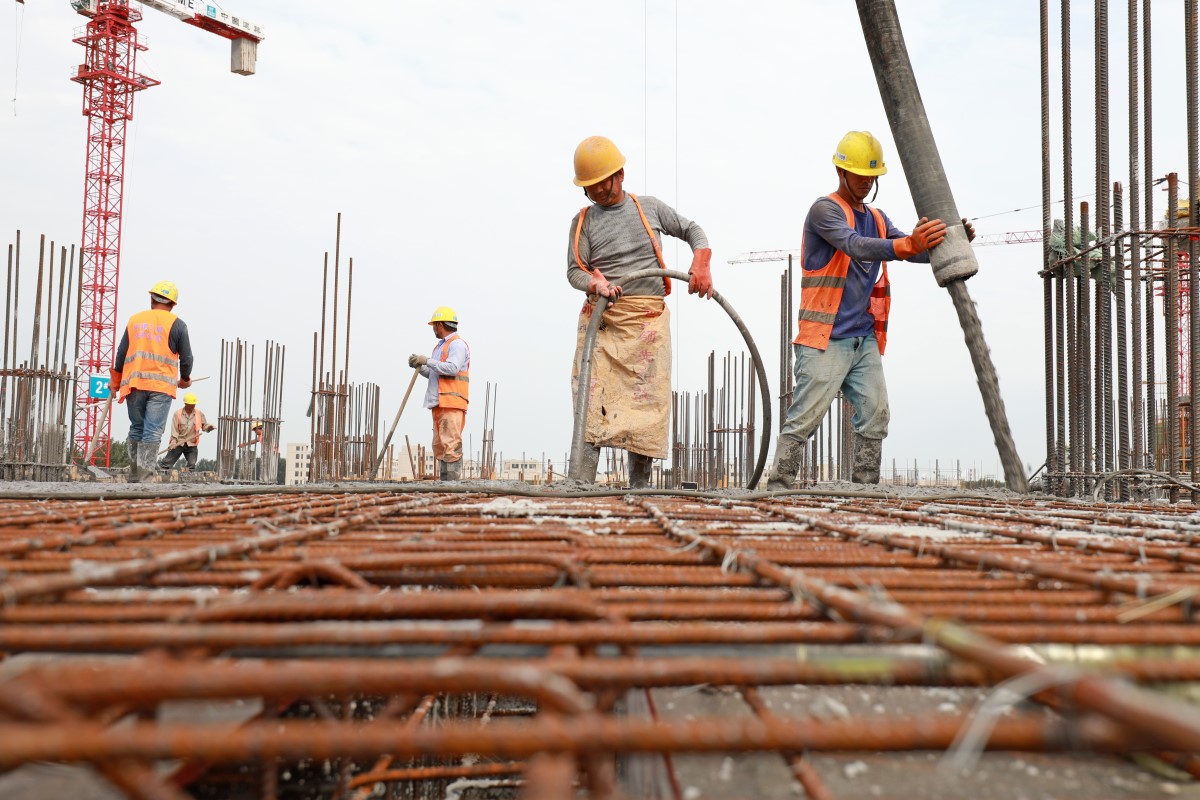China property boom attracted investors from around the world over the past two decades, fuelling the nation’s rapid growth. However, the real estate sector was on a debt-fuelled expansion which the Chinese government reined in last year, bursting the China housing bubble.
Starting with Evergrande’s default of debt payments, the China real estate crisis has now spread to other big developers as well as the financial sector, affecting the country’s economy. Although Chinese authorities have tried to provide support to the property developers, the situation remains bleak and unlikely to improve anytime soon.
More recently, homebuyers in China went on protest and refused to pay mortgages on properties that were far from completion, largely due to a lack of liquidity among real estate developers and the pandemic-led slowdown. The ill effects of the China housing bubble are now reflected on the balance sheets of the once grand property developers.
“Real estate property construction, home sales and mortgages are just part of the weaknesses we have seen in the Chinese economy. Export demand could also weaken in the coming months,” writes Iris Pang, chief economist, Greater China, at ING.
China housing bubble and declining earnings
Earlier this week, China’s largest property developer Country Garden Holdings reported a 96% drop in its half-year earnings, the biggest drop since the company was listed in 2007. The company had earlier warned that earnings would drop considering the real estate woes, a sector that was once considered to be relatively safe.
Country Garden is largely affected by the weakening demand from homebuyers as the majority of its business is in the lower end of the market with many of its customers being migrant workers. The company’s stock has fallen more than 60% this year, and most of its offshore bonds are below 50 cents in a dollar, reflecting the declining creditworthiness of the company. The real estate firm also saw a credit rating cut from Fitch Ratings and Moody’s Investor Service.
China’s state-backed developers were also not spared from the China housing bubble, as China Overseas Land & Investment (COLI) and Poly Property Group saw their half-yearly earnings shrink by 19% and 9.2%, respectively.
“Mainland China’s economy is facing the triple pressure of reduced demand, tightening supply and weakening expectations,” said Yan Jianguo, chairman and executive director at COLI, during the earnings statement.
COLI’s net gearing ratio stood at 41%, whereas Poly Property’s bank balances grew 11% from a year earlier to $5.17 bn. An outlier to the declining earnings trend was Hong Kong-based K Wah International which saw its net income rise 39% year on year.
Meanwhile, Evergrande bondholders are pushing their own plan for debt restructuring, the total for which amounts to about $300 bn. The company’s $22.7 bn of offshore debt is now deemed to be in default after it missed several bond payments last year.
A list compiled by Nikkei Asia found that most property developers in China, impacted by the China housing bubble, are seeing profits fall between 38% to 99%. Some loss-making developers are already seeing a widening net loss.
The vast losses and profit warnings real estate firms have reported reflect how deep problems run in the China property market. Additionally, property developers trying to spur sales are giving hefty discounts which are further impacting liquidity due to poor margins. Kelly Chen, a senior analyst at Moody’s Investors Service, told Nikkei that the profit warnings show the “credit negative” aspect of these companies.
Spreading risks of China housing bubble
Chinese authorities are trying to support the sector by providing additional stimulus and urging banks to provide credit. However, banks in China are pushing back against Beijing’s calls to support the property sector as they will be left with debt on their balance sheet.
Chinese banks are already facing a liquidity crisis and have raised record debt in 2022 to replenish capital. Separately, the financial sector is also dealing with slowing credit growth as the pandemic and the real estate crisis has plunged confidence among individuals and corporates to an all-time low.
In August, Beijing announced it will guarantee new domestic fixed-income issues by a dozen homebuilders that are fairly doing better financially and have low debt levels. China also pledged to lobby state-owned investors to purchase these bonds, resulting in a short rally in real estate stocks.
The People’s Bank of China in August cut the one-year loan prime rates by 0.05 percentage points to 3.65%, and the five-year loan rate by 0.15 percentage points to 4.30%, its second such cut this year.
An analysis by Financial Times found that investors are expecting a total of $130 bn in losses on Chinese property developers’ dollar debt. Overall, China real estate groups have missed payments worth $31.4 bn of offshore bonds in 2022.
Meanwhile, the China housing bubble has caused developers to lose at least $90 billion in stocks and dollar bonds this year, as per Bloomberg calculations.
“China’s property sales will stabilise in 2H22, followed by low single-digit growth in 2023. However, if timely and effective policy intervention does not materialise, distress in the property market will be prolonged and have effects on various sectors in China beyond the property sector’s immediate value chain,” said Fitch Ratings in a note.


 Australia
Australia China
China India
India Indonesia
Indonesia Japan
Japan Malaysia
Malaysia Philippines
Philippines Singapore
Singapore South Korea
South Korea Taiwan
Taiwan Thailand
Thailand Vietnam
Vietnam







